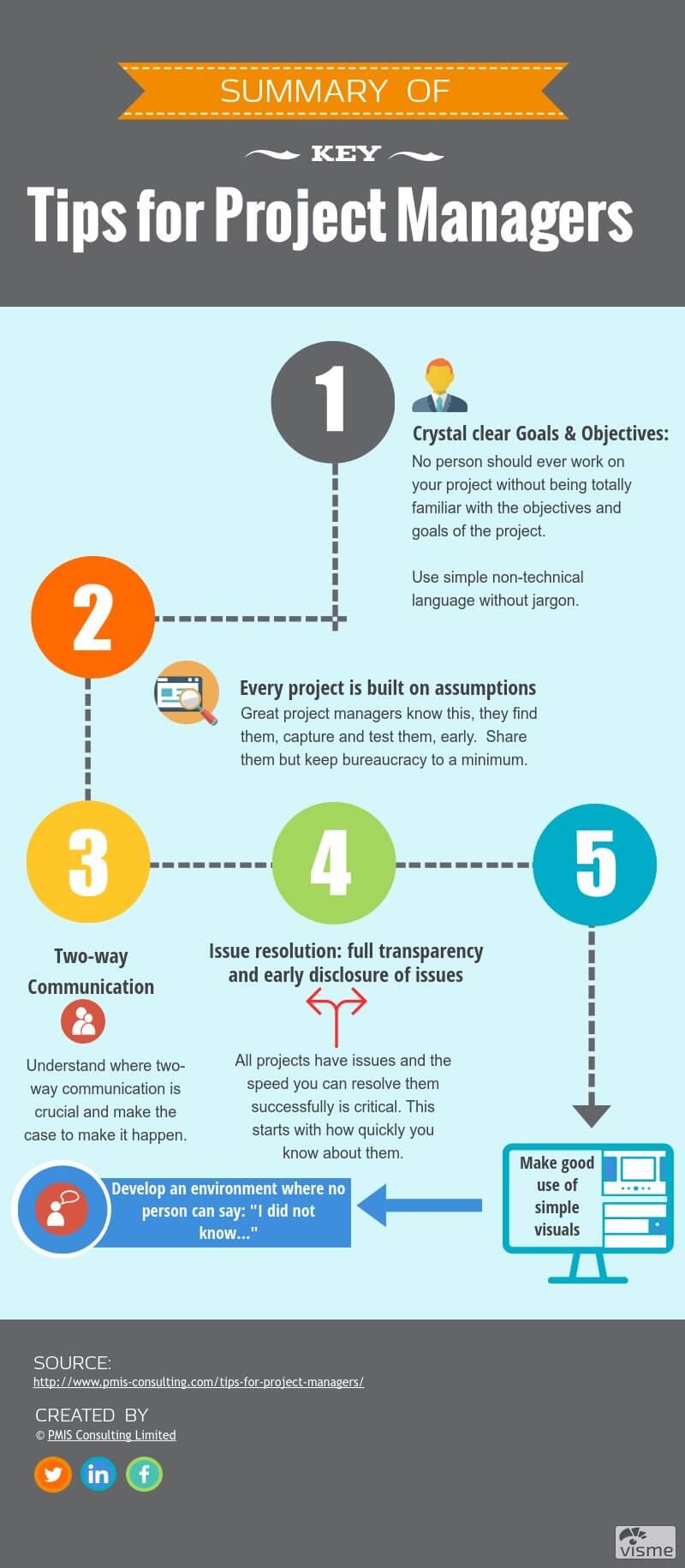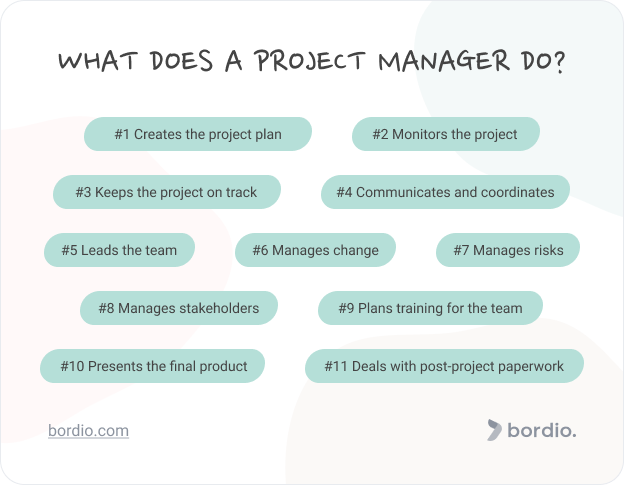Imagine stepping into a room where chaos reigns, deadlines loom, and the pressure is palpable. As a project manager, this is your everyday arena.
You hold the reins of the project, guiding it towards success amid uncertainties and challenges. But amidst the whirlwind, what is the most crucial task you must focus on? You might think it’s all about juggling tasks or perfecting communication, but there’s something even more vital.
Understanding this key responsibility can transform your approach and elevate your projects from mere assignments to triumphs. Curious to discover this pivotal aspect that can redefine your role? Dive into our article and unlock the secret to mastering project management like never before.
Essential Skills For Project Managers
Every project manager must have a set of essential skills. These skills ensure project success and smooth execution. Without them, even the best plans can fall apart. Let’s explore the key skills every project manager should develop.
Communication Mastery
Clear communication is the foundation of project management. A project manager must convey ideas effectively. This includes both verbal and written communication. Listening skills are equally important. Understanding team concerns and feedback is crucial. Good communication builds trust and keeps everyone informed. It also helps in resolving conflicts quickly.
Time Management Strategies
Projects have deadlines. Managing time efficiently is essential. A project manager must prioritize tasks. This ensures urgent tasks get done first. Using tools like calendars can help. They keep track of deadlines and appointments. Time management also involves delegation. Assigning tasks based on team strengths saves time.
Risk Assessment Techniques
Every project faces risks. Identifying these risks early is vital. A project manager should assess potential obstacles. This helps in planning solutions in advance. Risk assessment involves analyzing both internal and external factors. It prepares the team for unexpected challenges. Regular reviews of risk plans are necessary. This keeps the project on track and avoids surprises.

Credit: resourceguruapp.com
Leadership And Team Building
Leadership and team building are crucial for a project manager. These skills ensure projects run smoothly and meet objectives. A strong leader inspires and guides the team. Building a cohesive team boosts productivity and morale. This section explores key aspects of leadership and team building.
Motivating Your Team
Motivation drives team performance and commitment. Recognize each member’s contributions regularly. Set clear goals that align with the team’s vision. Provide feedback that’s constructive and timely. Encouragement and support are key. This builds a positive work environment.
Conflict Resolution
Conflicts arise in any team. Effective resolution is vital for harmony. Listen actively to all sides. Identify the root cause of the conflict. Encourage open dialogue among team members. Find solutions that satisfy everyone. This maintains a peaceful and productive atmosphere.
Delegation Techniques
Delegation is a core skill for project managers. Assign tasks based on team members’ strengths. Clearly define responsibilities and expectations. Trust your team to complete their tasks. Monitor progress without micromanaging. Delegation empowers your team and fosters growth.
Setting Clear Objectives
Setting clear objectives is the cornerstone of successful project management. Without well-defined goals, a project can easily lose direction and momentum. Imagine trying to navigate a ship without a map—chaos ensues. This is the same for projects without clear objectives. They become a tangled mess of confusion and wasted resources. As a project manager, your ability to set and communicate precise objectives will determine your project’s success.
Defining Project Goals
To start, ask yourself: What do you want to achieve with this project? Clear goals provide a roadmap that guides every step of the process. They act as a lighthouse, ensuring your team knows where they’re headed. Outline specific, measurable, attainable, relevant, and time-bound (SMART) objectives. This approach helps everyone understand the target and what success looks like.
Consider a time when goals were vague in a project you worked on. How did it affect the outcome? By defining precise goals, you create a shared vision that your team can rally around. This shared understanding fosters collaboration and boosts morale.
Aligning With Stakeholders
It’s crucial to align project goals with stakeholder expectations. Are all parties on the same page? Misalignment can lead to misunderstandings and conflict. Frequent communication helps bridge gaps between your team and stakeholders.
Engage stakeholders early and often. Gather their input and ensure their needs are met. This proactive approach builds trust and minimizes surprises. When everyone is aligned, the path to project completion becomes smoother.
Tracking Progress
Once objectives are set, how do you ensure you’re on track? Regularly monitor progress to identify if adjustments are needed. Use tools like project management software to keep everyone informed. Tracking helps highlight achievements and areas needing improvement.
Ask yourself: Is the project moving towards its goals? If not, investigate why. This ongoing evaluation allows you to make informed decisions and keep the project aligned with its objectives. Remember, tracking isn’t just about checking boxes; it’s about fostering continuous improvement.
Setting clear objectives is about more than just writing them down. It’s about creating a shared vision, aligning with stakeholders, and tracking progress effectively. Are your project’s objectives crystal clear? If not, take action now. Your project’s success depends on it.

Credit: www.pmis-consulting.com
Budget Management
Budget Management is a crucial aspect of any project manager’s role. It involves planning, tracking, and controlling the financial aspects of a project to ensure its success. Efficient budget management allows a project manager to deliver the project on time, within scope, and within budget, which is a challenge many professionals face.
Consider your last project. Did it stay on budget? Or did unexpected costs throw you off track? Understanding and mastering budget management can help prevent these issues.
Cost Estimation
Accurate cost estimation is the foundation of effective budget management. It involves predicting the financial resources required to complete a project. Start by breaking down the project into smaller tasks and assigning costs to each one.
Engage with team members to gather insights on potential expenses. This collaborative approach can uncover hidden costs you might overlook. Remember, underestimating can lead to budget overruns, while overestimating might result in resource wastage.
Resource Allocation
Resource allocation is about distributing available resources efficiently. It requires you to prioritize tasks and assign the right people and tools to each one. A well-allocated budget ensures that resources are not wasted on non-essential activities.
Have you ever noticed a project stagnating due to a lack of resources? Proper allocation can prevent bottlenecks and keep your project moving smoothly. Use budgeting software to visualize your resource distribution and make adjustments as needed.
Financial Reporting
Financial reporting keeps you accountable and provides a clear picture of your budget status. Regular reports help track expenses and compare them to the original budget. This transparency allows you to make informed decisions and adjustments.
Consider sharing these reports with stakeholders to build trust and maintain open communication. Have you ever faced a budget discrepancy? Timely reporting can help you identify and resolve issues before they escalate.
Budget management isn’t just about numbers; it’s about making strategic decisions that lead to project success. By focusing on cost estimation, resource allocation, and financial reporting, you can manage your budget effectively and lead your project to triumph.
Embracing Agile Methodologies
Embracing Agile methodologies transforms the way project managers operate. Agile focuses on iterative progress and collaboration. This approach helps teams adapt quickly to changes and deliver value efficiently. The core principles of Agile encourage flexibility and continuous improvement. It promotes a culture of open communication and shared responsibility. These elements are vital for project success in today’s fast-paced environment.
Benefits Of Agile Practices
Agile practices offer many benefits for project managers. They enable faster delivery of products and services. Teams can respond to customer feedback more effectively. This leads to higher customer satisfaction. Agile also improves team collaboration and transparency. Everyone knows the project status at any given time. This clarity helps in making informed decisions quickly. Agile’s focus on value-driven development ensures resources are used wisely.
Scrum And Kanban Frameworks
Scrum and Kanban are popular Agile frameworks. Scrum organizes work into small, manageable units called sprints. These sprints allow teams to focus on specific tasks and goals. Regular meetings keep everyone aligned and on track. Kanban, on the other hand, visualizes the workflow. It helps teams manage work in progress and identify bottlenecks. Both frameworks promote continuous improvement and efficiency. They empower teams to deliver quality outcomes consistently.
Flexibility And Adaptability
Agile methodologies emphasize flexibility and adaptability. Project managers must be ready to adjust plans when necessary. This approach helps teams handle unexpected challenges better. It ensures projects remain on course despite changes. Agile encourages iterative planning and feedback loops. These elements help refine processes and improve outcomes. Being adaptable is key to meeting client needs and market demands.
Effective Communication Channels
Effective communication channels are the backbone of successful project management. As a project manager, your ability to establish clear, open, and efficient lines of communication can make or break a project. Imagine a team where everyone knows exactly what’s happening, why it’s happening, and what their role is. That’s the power of effective communication. Let’s dive into how you can achieve this.
Choosing The Right Tools
Selecting the right tools is crucial for seamless communication. You might have experienced the frustration of missed emails or forgotten messages. To avoid this, choose tools that suit your team’s workflow and preferences.
Consider using platforms like Slack for instant messaging or Trello for task management. These tools help keep communication organized and accessible. Ask yourself: Are the tools you’re using enhancing or hindering your team’s communication?
Regular Updates And Feedback
Regular updates keep everyone on the same page and reduce confusion. As a project manager, it’s your role to ensure that updates are consistent and clear. Weekly meetings can be a great way to discuss progress and tackle any hurdles.
Encourage your team to give feedback. It’s a two-way street. This not only improves project outcomes but also boosts team morale. How often do you gather feedback, and how do you use it to improve your processes?
Stakeholder Engagement
Engaging stakeholders is vital for a project’s success. They have a vested interest in the project’s outcome, and their input can provide valuable insights. Keep them informed and involved through regular reports or check-ins.
Consider creating a communication plan that outlines how and when you will engage stakeholders. This ensures that everyone has a voice and feels valued. How are you ensuring that stakeholders are actively engaged in your projects?
By focusing on these key areas, you’ll create a communication environment that supports your project goals and enhances team collaboration. Remember, effective communication is not just about talking, but also about listening and adapting to the needs of your team and stakeholders.
Continuous Learning And Improvement
A project manager’s key focus should be continuous learning and improvement. This involves adapting to changes and enhancing skills regularly. Cultivating a growth mindset helps in navigating challenges effectively and optimizing project outcomes.
Continuous learning and improvement are vital for project managers. The business environment shifts rapidly. A project manager needs to adapt. Staying updated with new trends and skills is crucial. This ensures success in managing projects and teams. Let’s explore how continuous learning supports a project manager’s growth.
Professional Development Opportunities
Project managers should seize professional development opportunities. Workshops and seminars offer fresh insights. Online courses provide flexibility in learning. Certifications enhance knowledge and credibility. Networking events connect managers with industry experts. These platforms nurture growth and inspire new ideas.
Learning From Past Projects
Past projects serve as valuable lessons. Reflecting on past successes and failures is important. It highlights what strategies worked well. It also reveals areas needing improvement. Documenting these lessons aids future projects. Effective project managers learn from every experience.
Innovation And Creativity
Continuous learning fuels innovation and creativity. It encourages project managers to think outside the box. Creative solutions often solve complex project issues. New tools and technologies can enhance project efficiency. Exploring diverse approaches can lead to breakthrough ideas.

Credit: bordio.com
Frequently Asked Questions
What Is The Most Important Role Of A Project Manager?
The most important role of a project manager is to ensure project success. They plan, execute, and oversee projects, managing resources and timelines effectively. They communicate with stakeholders, address issues promptly, and ensure the team stays on track. Their leadership ensures project goals align with business objectives.
What Is 90% Of A Project Manager’s Job?
A project manager’s job primarily involves communication, planning, and coordination. They manage timelines, resources, and stakeholder expectations. Effective problem-solving and decision-making are crucial. Ensuring team collaboration and project progress is key. Regular updates and reporting keep everyone aligned towards goals.
What Are The 5 C’s Of Project Management?
The 5 C’s of project management are Communication, Collaboration, Clarity, Commitment, and Creativity. Effective communication ensures everyone stays informed. Collaboration fosters teamwork. Clarity provides clear goals and expectations. Commitment keeps the team dedicated. Creativity encourages innovative solutions for project challenges.
What Is The Most Important Skill For A Project Manager?
Effective communication is the most important skill for a project manager. It ensures clear understanding among team members, stakeholders, and clients. Good communication helps manage expectations, resolve conflicts, and drive project success. A project manager must convey ideas, listen actively, and adapt communication styles to different audiences.
Conclusion
A project manager’s key task is to communicate effectively. Clear communication helps teams understand goals. It builds trust. Encourages collaboration. Keeps projects on track. Without it, misunderstandings arise. Deadlines get missed. Stress increases. Communication isn’t just talking. It’s listening too.
Understanding team needs. Adjusting plans accordingly. Ensures project success. So, focus on communication. A vital skill. It simplifies complex tasks. Boosts team morale. Helps achieve project objectives efficiently. Remember, good communication makes a project manager great. Keep it simple. Clear.
Direct. Your team will thank you. Your project will thrive.

